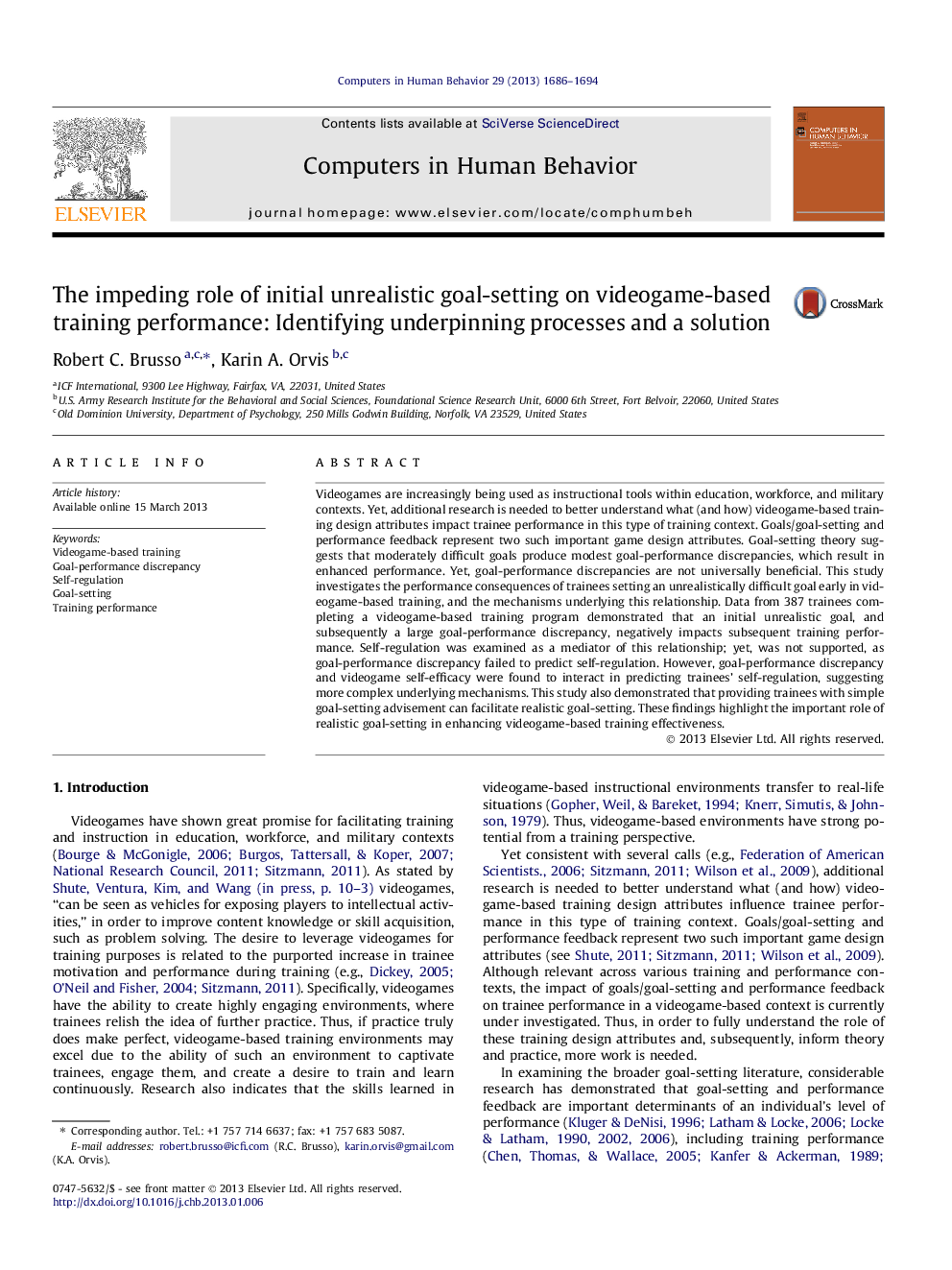| Article ID | Journal | Published Year | Pages | File Type |
|---|---|---|---|---|
| 351070 | Computers in Human Behavior | 2013 | 9 Pages |
Videogames are increasingly being used as instructional tools within education, workforce, and military contexts. Yet, additional research is needed to better understand what (and how) videogame-based training design attributes impact trainee performance in this type of training context. Goals/goal-setting and performance feedback represent two such important game design attributes. Goal-setting theory suggests that moderately difficult goals produce modest goal-performance discrepancies, which result in enhanced performance. Yet, goal-performance discrepancies are not universally beneficial. This study investigates the performance consequences of trainees setting an unrealistically difficult goal early in videogame-based training, and the mechanisms underlying this relationship. Data from 387 trainees completing a videogame-based training program demonstrated that an initial unrealistic goal, and subsequently a large goal-performance discrepancy, negatively impacts subsequent training performance. Self-regulation was examined as a mediator of this relationship; yet, was not supported, as goal-performance discrepancy failed to predict self-regulation. However, goal-performance discrepancy and videogame self-efficacy were found to interact in predicting trainees’ self-regulation, suggesting more complex underlying mechanisms. This study also demonstrated that providing trainees with simple goal-setting advisement can facilitate realistic goal-setting. These findings highlight the important role of realistic goal-setting in enhancing videogame-based training effectiveness.
► Unrealistic goal-setting results in a large goal-performance discrepancy (GPD). ► A large GPD hinders subsequent game-based training performance. ► Self-regulation with goal commitment underlie the GPD-performance relationship. ► Goal-setting advisement is a viable solution to minimize GPDs experienced.
